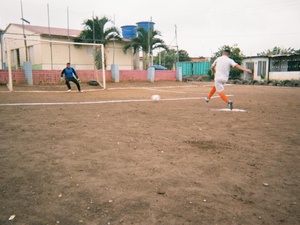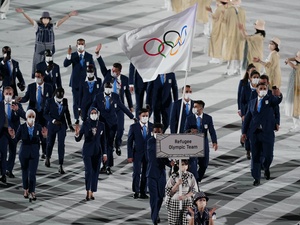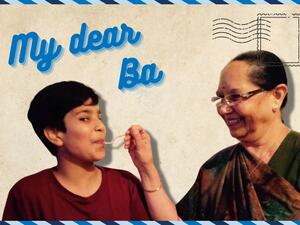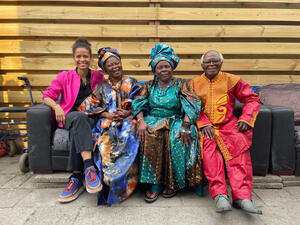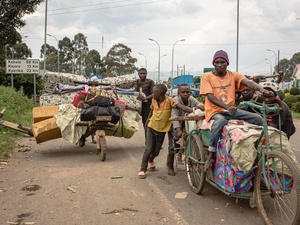Rohingya refugees lead unlikely cricket revival in Ireland
Rohingya refugees lead unlikely cricket revival in Ireland

Robi Alam, a Rohingya refugee who was resettled to Ireland stands ready at the wicket.
CARLOW, Ireland – A rarely heard sound is returning to the Irish countryside – the dull thud of leather against willow.
Cricket, the game that unites players from the Caribbean to South Asia and Australia, can once again be heard in the small town of Carlow, in the country’s south east – thanks to Rohingya refugees.
“We’ll play fourball overs. Then the batters can turn to bowling,” cries Ben Parmeter, who volunteers with the Carlow Cricket Club and has mastered the game’s arcane language.
Young children scurry around Parmeter, a local doctor originally from Australia. Some are dressed in the traditional white cricket dress, others in the green and red of Bangladesh, where some of the players spent many years of their lives as refugees.
They bat balls back and forth as, elsewhere on the pitch, much younger children learn the basics of the game with Jimmy Dooley, a youth worker with Carlow Youth Services and secretary of the club.
“There would be no cricket team here if it wasn’t for the Rohingya,” says Dooley. “It’s all down to them.”
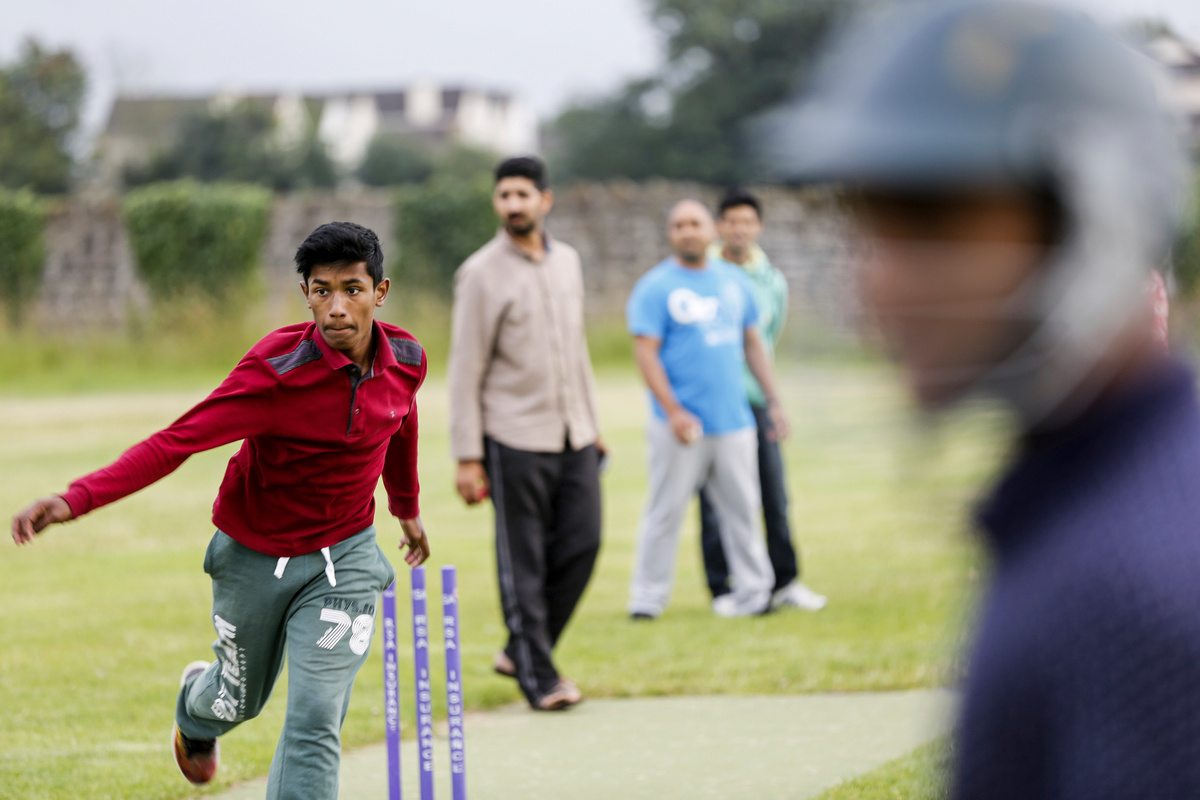
A group of Rohingya refugees who were resettled in Ireland have revived interest in cricket in the town of Carlow.
While cricket was once played widely across Ireland, the sport's popularity faded as people became more engaged with traditional Gaelic games, such as hurling and Gaelic football.
Carlow once had its own premier side, but the cricket club closed its doors for good in the early 1980s.
Then, in 2009, 64 Rohingya refugees were resettled in the town of Carlow. In the camps of Bangladesh, many of the boys had taken to playing cricket; now they were eager to break out the bat once more.
“Playing in a muddy field with a dirty wooden bat was a distraction from the hardship we faced every day,” says Robi Alam, 15, who was born in Nayapara refugee camp in south-east Bangladesh.
His family fled their home in western Myanmar, where decades of violence has forced hundreds of thousands of people, the majority of them Rohingya, to flee. Bangladesh was safe, but many of the Rohingya live in emergency-like conditions with high rates of poverty.
“I hope to one day play in the Ireland national cricket team.”
Once in Carlow, Alam began playing near the housing estate he moved into with the other members of the Rohingya community.
“When we first came here we bought a cheap bat and played in the long grass beside our housing estate,” says Mohammed Rafique, assistant secretary of the club and a member of the town's Rohingya community. “Some of the locals were interested and joined in, and before we knew it we were playing cricket matches – the Irish on one side and the Rohingya on the other.”
A small grant allowed them to buy two bats, helmets, gloves and one set of stumps, the three sticks that the opposing team aim to strike with a ball that is bowled towards it. The local rugby club in Carlow offered them their grounds to play in, and they soon joined the national all-Ireland league.
Despite not boasting a championship grade pitch, they now have two senior teams in different divisions. The first team was promoted to Division 9 last year, and the local secondary school St Mary’s Academy, played its first game in June. Taking on King’s Hospital, an established school side in Dublin, they won.
“I don’t think it was normal for them to lose,” says Yunus Mohammed, another member of the Rohingya community. “I think they were surprised.”
With 13 nationalities now represented in Carlow Cricket Club, its players are hoping that success will keep coming. But in order to maintain the momentum, coaching will become key, a challenge when Cricket Ireland, the national governing body for the sport, has not been able to provide specialized coaching to grow participation in the region.
That’s meant the club’s officials have had to step in, with the parents of new players attending the professional coaching courses that might just make Carlow a big cricket town again.
The hope is that not only the local team will benefit, but Ireland too.
“I hope to one day play in the Ireland national cricket team,” says Alam. “That way I will be able to show that you can go from a squalid camp to the highest national podium.”
*Giulia La Scala contributed reporting


